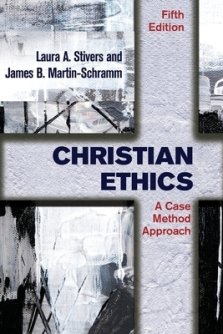In the past few decades we have become increasingly aware of the impact that human beings have on climate change, chiefly through the use of fossil fuels. But what public policies are needed to make a difference to the damage we are doing and who should shoulder the burden of paying (in every sense) for those policies? This is the theme of this book by James Martin-Schramm who is a professor of religion in the United States and research chair in the Center for Ethics and Public Life at Luther College, Decorah, Iowa.
Professor Schramm knows what he is talking about. If you want to know about the facts of climate change this is a book for you. He summarizes and presents in some detail the principal issues of climate change. As early as page five we have a table showing the Multimodel Averages and Assessed Ranges for Surface Warming between 1900 and 2010, closely followed by tables of Changes in Greenhouse Gases from Ice Core and Modern Data 1800-2000, and Changes in Temperature, Sea Level and Northern Hemisphere Snow Cover 1850-2000. The book is replete with information of this kind. This gives credibility to the factual case that the author presents. It is hard to resist the conclusion that ‘we have a problem’.
While there are other books that do the same work, what this book does is to ground this factual presentation within a coherent Christian theology and ethics. He begins his reflections by quoting Genesis 1.1-3 which speak about wind, light and creation. In other words, ‘to imagine the fullness of God is to talk about energy’. He draws his ethics largely from the ethic of ecological justice that the World Council of Churches developed in the 1970s and other Protestant churches have since taken further. This enables him to put forward a set of ethical guidelines that he then applies to the various energy options available to industrial nations – coal, oil, natural gas, nuclear and renewable alternatives – in order to assess them ethically.
The book ends with a living parable. He tells us about the work his own college is doing to reduce its own greenhouse gas emissions. It is a book that takes us from high level discussions of theology, ethics and public policy, to a very practical example. That is a good model for any writing in this area since my impression is that most Christians do not need to be persuaded about climate change but they do need to be shown what they can do.
Trustpilot












